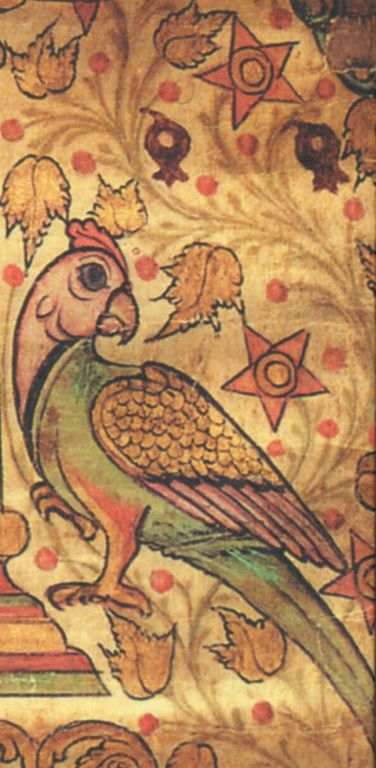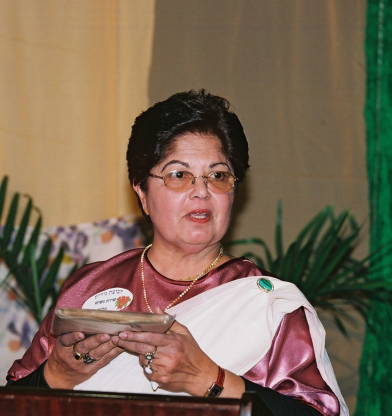1981/ 2023
4. Song of Moshe Mutaliyar
4a. Hannah (Dolly) Japheth and Ruby Daniel. Recorded by Barbara Johnson, Kibbutz Neot Mordecai, 1981.
4b. Sung and recorded by Venus Lane, Tiberias, March 21, 2023; I-1.
Āti pĕriyonĕ, tŏṇayāyiṭṭu nikkaveṇaṃ
Āya sěvaṟkkattil ěnna nī kūṭṭeņaṃ
1. Great God from the beginning, stand as our help, we pray.
Great God from the beginning, what happened by Your command?
Shingly, that beautiful country—it’s too much for us to remember.
And Kotanagiri’s fine things—it’s hard to imagine them all.2. Ribbi Moshe Mutaliyaru came to visit the ruler.
“So you’ve come to Malanatu? Aren’t you a gem of a man!
My dear Mutaliyaru, tell me now, why have you come?”
“Because in exchange for my riches, a very good place I desire.”3. On a day that was auspicious, the paḷḷi foundation was laid.
With a surrounding wall, an attractive compound was made.
Strong square posts were raised up, and then the heikhal was built.
Then they took up the Torah; in harmony it was installed.4. And so, assembling as ten, they go to the paḷḷi as one.
In harmony they can bow down to the God of harmony.
Praises, praises, and praises to You, Great God; we are praising.
May Your holy name be praised forever, O Lord Tamburan.
This song straddles genres, combining an origin narrative with features of a typical paḷḷi song, but the origin story is unique, and the synagogue being built is not associated with any one of the eight Kerala Jewish communities known to recent history. Like Evarayi in song 3, Moshe is a Jewish religious teacher (ribbi) and traveling merchant who comes to Malanatu, but he does not arrive in Palur. Instead, he arrives in “Shingly,” a Jewish name for ancient Kodungallur, which is praised as a beautiful country. I have not been able to identify Kotanagiri as the name of a specific place in Kerala (old or contemporary), but a translation of the Malayalam term would be “Fortress City.”
In this song the newcomer acquires land to build a synagogue by boldly going to visit the king and offering to pay for the land. The ruler’s formulaic question “Why have you come?” is part of an informal folk-style conversation between the visitor and the king, somewhat playfully suggesting a meeting of equals—similar to the exchange in song 5 about the Mala Paḷḷi, as well as conversations in some of the biblical songs. The ruler addresses Moshe by the traditional Kerala title Mutaliyar, which is conferred on the established leader of a group (as in songs 5, 6, and 51) and is also used to refer to a wealthy person. Both meanings are conveyed in the song, as Moshe offers his riches (mutali) in exchange for a good building site. The remaining stanzas carry standard details about the building of a paḷḷi.
“Moshe Mutaliyar” is the only Malayalam song in our collection using the term “Shingly,” which is generally associated with Paradesi community traditions about Joseph Rabban, as noted in the introduction to section I. However, the song is found in eight different notebooks, from Parur, Chendamangalam, and Kochi-Tekkumbhagam, as well as from Kochi-Paradesi.
After listening to the original recording by her aunt Ruby and great-aunt Dolly more than forty years ago, Venus Lane made a clearer recording in 2023. Both versions are cited here.
_____________________________
[1] Heikhal is the Hebrew and Jewish Malayalam term for the Ark, an often ornamented cabinet housing the Torah scrolls.






